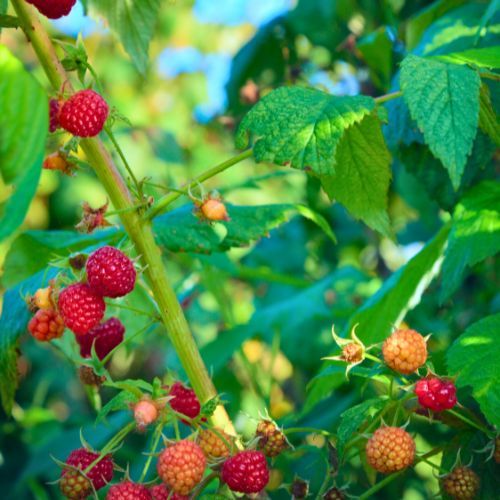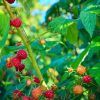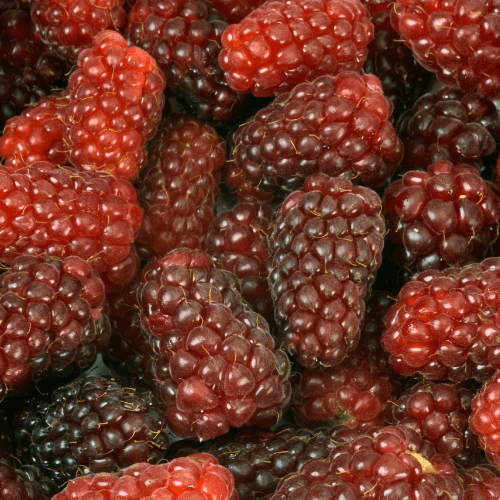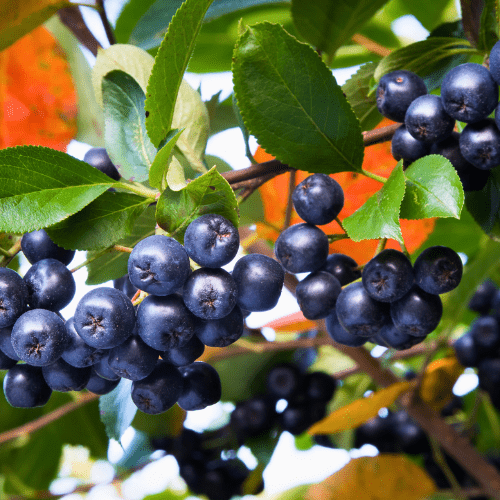Position
Full sun, sheltered – tolerates partial shade.
Raspberries can be planted at any time providing the soil is not waterlogged and can withstand cold temperatures of -10 degrees.
Size
A trellis or fence is required as it is a bramble.
Soil
Well drained, slightly acidic.
Raspberries thrive in moisture-retentive, fertile, slightly acidic soils, well-drained and weed free.
They dislike soggy soils and shallow chalky soils.
They prefer soil with a Ph level of 5.8 – 6.8. Mix in some decomposed compost with the soil before planting.
Dig a hole 50cm x 50cm deep and mix half acidic compost, half potting soil.
Place the plant directly into the soil mixture and cover it with a mulch of pine bark or pine needles, 5 – 15cm thick.
We stock Volcanic Rock Dust which contains organic minerals and trace elements to boost soil health and increase important micro-organisms essential for healthy soil.
Mulch
Add a thick layer of pine bark mulch, keeping it about 20 to 30 centimetres away from the tree trunk (any closer may cause excess moisture and damage the trunk). This will retain the moisture in the soil and will prevent weeds from taking over.
Watering
Couple of times a week. Once a day in very hot weather. Do not overwater as this causes root rot.
Fertilising
Once in spring and again in summer with a slow release, organic fertiliser.
Use our slow-release nitrogen-rich fertiliser, like our berry fertiliser Apply 1 teaspoon of our berry fertiliser every 4-5 months.
Pruning
Cut back dead canes during winter. Prune canes that bore fruit to promote new growth.
Pests and Diseases
Aphids, citrus psylla, red scale, citrus greening. Spraying regularly with Agricultural Neem Oil or Effective Microorganisms (EM Control ) will assist in either prevention or after the fact. If you already have aphids or mites, wash the tree with a harsh hosing, and when dry, spray with Neem oil or EM Control.
Practice good garden hygiene (remove fallen fruit and leaves).
Watch for root rot (if overwatered) and fungal infections during wet periods.
PLEASE NOTE: Mulch of pine bark or pine needles is a great way to lower the Ph of soil and to add organic matter, but please make sure when using it as a mulch on top of the soil to not have it touching the branches of the plant. This may cause the branches to rot and get infected especially with new and one to two year old branches






